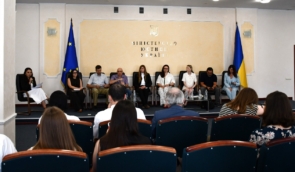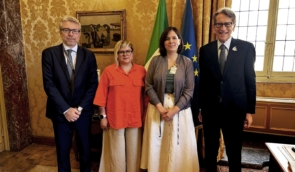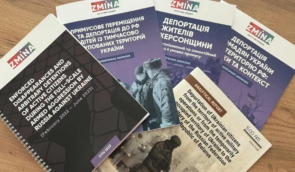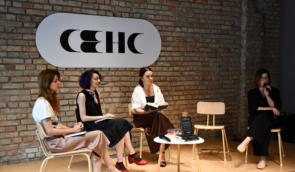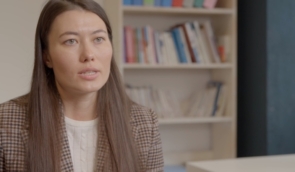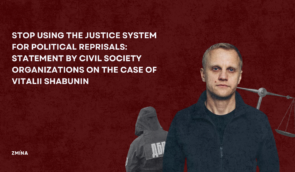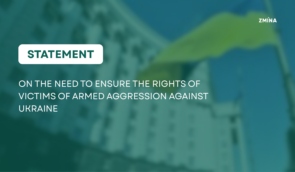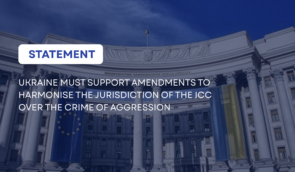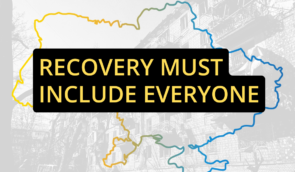Ukrainians in occupation are under constant pressure and do not understand what awaits them after the liberation of the territories – Onysiia Syniuk
On April 16, in Kyiv, representatives of the authorities and the public talked about what the state policy should be regarding the reintegration of the de-occupied territories. The organiser of the discussion was the School for Policy Analysis NaUKMA. A legal analyst of the Human Rights Centre ZMINA Onysiia Syniuk joined the event.
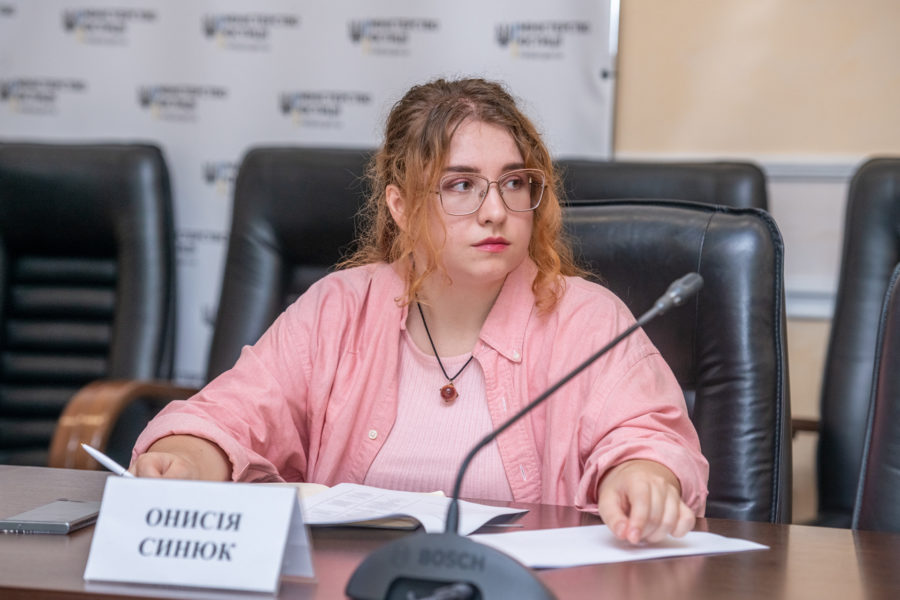
During the presentation, the participants also discussed how to effectively communicate and advocate for solutions related to the reintegration of the de-occupied and temporarily occupied territories of the country.
Onysiia Syniuk noted that people in the temporarily occupied territories do not understand the essence of collaborationism and do not know what exactly they can be held responsible for. Russia takes advantage of this, Syniuk believes.
“We emphasise that people in the occupied territory are under constant pressure and fear. The Russian Federation puts pressure on them every day: they cannot receive, for example, social or medical services without a Russian passport, as well as work in the occupied territory and, accordingly, earn a living for their family”, a legal analyst ZMINA added.
The speaker shares that under such pressure, Ukrainians in occupation also do not understand what Ukraine’s reaction will be when the authorities return to these territories. This misunderstanding and lack of clear messages is used against them by the Russian authorities.
“Many people from the de-occupied territories said that this uncertainty about who would be punished for collaborative activities was used by the Russian military to force people to leave these territories before de-occupation”, Syniuk says.
According to her, the Russians told the Ukrainians about the need to leave the occupation, because Ukraine will prosecute those who remained in the occupied territories. And people do not have the opportunity to check such information due to the limitations of communication channels, Onysiia Syniuk added.
The expert also says that there is currently a lack of clear communication on this issue in Ukraine, and there is still no clarity in the legislation that provides for responsibility for collaborative activities.
Ukraine needs a comprehensive policy on this issue in order to explain to the people in occupation what awaits them after de-occupation, Onysiia Syniuk is convinced.
You can find the video from the event here (in Ukrainian).
If you have found a spelling error, please, notify us by selecting that text and pressing Ctrl+Enter.

